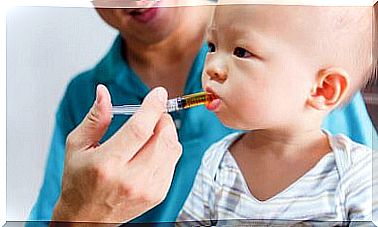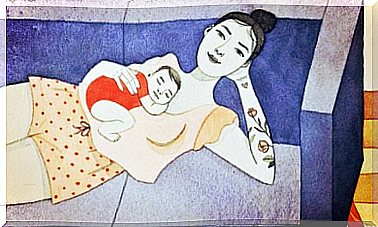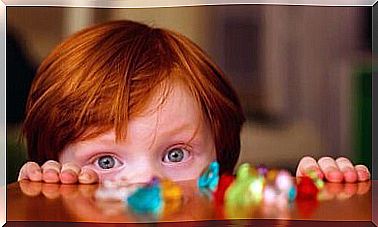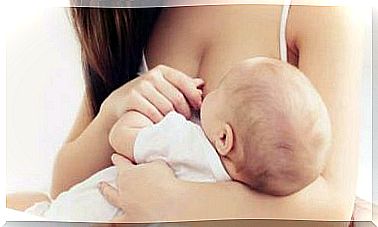Postpartum Depression: Causes, Symptoms And Cure
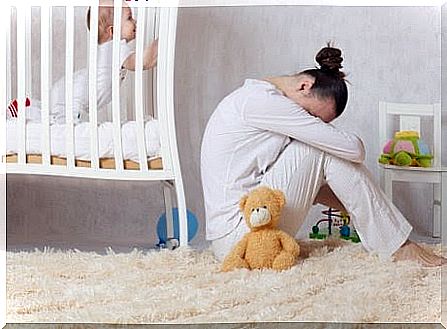
When we hear the word postpartum depression, we usually imagine an overwhelmed mother with a crying baby in her arms. But postpartum depression is much more than that.
Postpartum depression, or postpartum depression as it is also called, is a type of depression that occurs in women shortly after birth. It can be up to a year.
There is also male postpartum depression, although it is not as common compared to its female counterpart.
According to studies, up to 25% of women may experience one or more of the characteristic symptoms of postpartum depression.
From this we can conclude that the frequency is quite high, so it is worth learning all we can about it.
Causes of postpartum depression
Postpartum depression in women can be the result of several factors. Some of these include:
- Physical changes. Pregnancy completely changes a woman’s body. Once you have given birth, the cause of all these changes is suddenly no longer in your body. This makes it difficult to accept that your body will need some time to recover.
- Environmental changes. Now you have your child. Your baby requires all your resources right from the start. You see that your social and professional relationships are affected because you can no longer handle everything in the same way as you did before.
- Loss of independence and personal space. The level at which your baby demands your attention exceeds what you thought it would be. For a time, you will no longer have your own space.
- Lack of sleep. The fatigue that comes with the first months of parenthood is well known. Lack of rest leads to fatigue accompanied by depressive thoughts.
- The pressure to be a perfect mother. Letting yourself be influenced by those around you about what you need to do, along with your own ideas and ideas, can clash with reality. This merging and aligning of ideas can be confusing.
- Related conditions, such as depression, bipolar disorder or anxiety.
- Use of drugs, alcohol or other harmful behaviors during pregnancy.

Focus on recovery to give your baby the best version of yourself.
Symptoms of postpartum depression
Before we talk about the symptoms, it is necessary to clarify that it is normal that the first two weeks after birth are full of moments of crying, anxiety and overwhelming emotions. Postpartum depression takes grief to another level, causing changes in the mother’s behavior toward the baby:
- Excessive interest or no interest at all in the newborn.
- Fear of being alone with the child.
- Total lack of care for himself and the child.
The following symptoms must be added to these behavioral changes:
- Upset and irritability.
- High levels of anxiety.
- Sleep problems.
- Changes in appetite.
- Feelings of inability or guilt.
- Loss of concentration and energy.
- Thoughts of death / suicide.
What can be done to combat postpartum depression?
The most important thing is to know that it is more common than it seems. Motherhood is difficult. It comes with many changes that you need to adapt to quickly, and it is not easy to accept all of them.
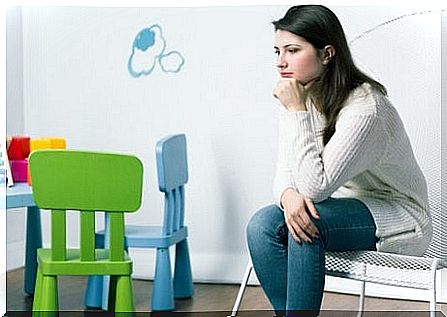
If you notice that feelings of sadness and depression last longer than the first two weeks with your newborn baby, seek professional help.
Whether it is medical treatment or therapy, it is important to follow the recommendations of the healthcare system.
These tips may also be helpful in managing postpartum depression:
- Look among those around you for support. Your partner, your family and your close friends can help you with chores at home or with taking care of your baby.
- Do not be ashamed of what you go through. Do not hide your feelings and feel no guilt over them. You have the right to feel sad and overwhelmed in your situation.
- Try talking to other moms about it. Many mothers think that they should feel happy and therefore hide what they are really going through for fear of being judged.
- There is no one who is a perfect mother, but there are good mothers. Focus on recovering so you can give your baby the best version of yourself. Do not worry, your baby will love you no matter what.
Above all, knowing that your child needs you more than anyone else in the world will help you find the inner strength you need.


